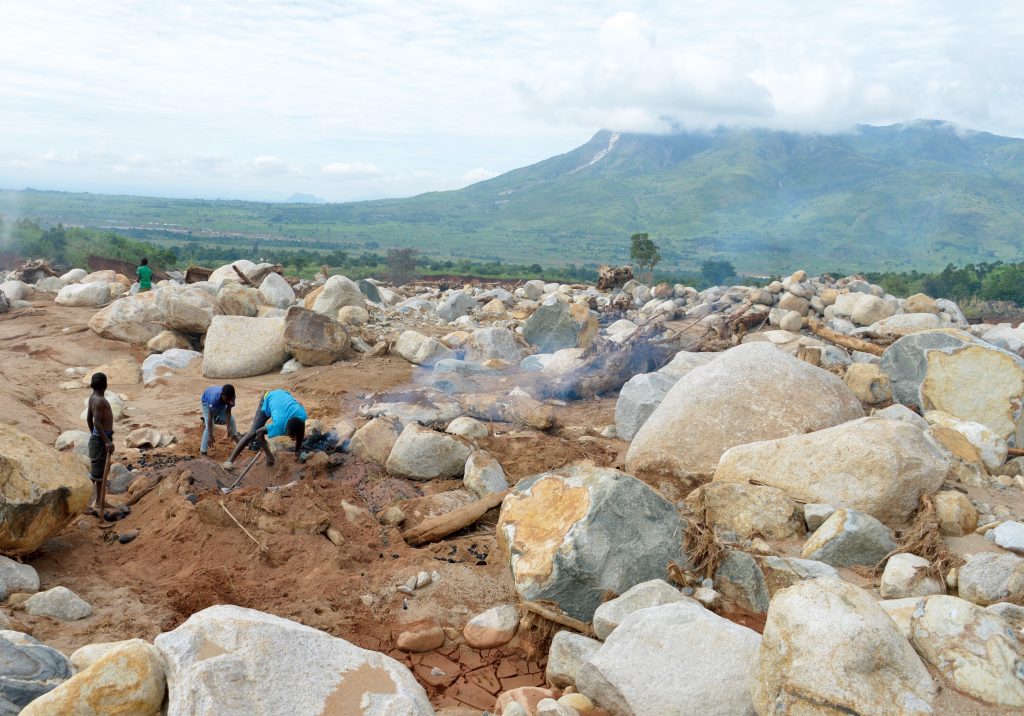Irrigation schemes under seige
Survivors of Cyclone Freddy, which affected more than 2.2 million people and killed hundreds in southern Malawi, are still struggling to recover and rebuild their livelihoods.
Those who lost their crops to the devastating floods bank their hopes on irrigation, but nearly all the schemes were damaged with no repairs in sight.

The affected farmers hoped the government and its partners would swiftly rehabilitate the irrigation schemes in time for winter cropping, but the wait keeps lengthening.
Instead, they had to do with erratic hand-outs, including unpredictable food aid from well-wishers, which only reduced them to hand-to-mouth livelihood.
No seed. No fertiliser. No hope.
The story takes us to Mulanje, Phalombe, Chikwawa and Nsanje where many have embraced irrigation for survival amid frequent disasters.
This tale dates back to the 1980s when farmers started shunning rain-fed agriculture for irrigation farming, but not as organised as it is today.
For years, farmers in Senior Chief Nkhulambe in Phalombe depended on Sukasanje, Tithaniwa and Sekanawo irrigation schemes, which transformed “the area of hardworking people” into a food basket for the district and surrounding towns. They produce maize, rice and sweet potatoes for both local markets and export to Mozambique and South Africa.
There are similar stories in the wetlands under group village head (GVH) Ndala, TA Njema in Mulanje District, where the rural economy hinged on four major irrigation schemes that were flattened by Freddy. These are Sambanyali, Nakhonyopa, Nanchidwa and Tcherekere irrigation schemes.
All the schemes in the neighbouring districts were damaged by the devastating cyclone which washed away irrigation pipes and left the fields buried in silt and huge rocks.
Nachidwa Irrigation Scheme chairperson Bigborn Juwawo says the scheme constructed in 2010 was a lifeline for Ndala villagers.
“Our area is blessed with abundant water,” he says. “We have rivers that don’t dry up during the dry season.” The water sources convinced the government and its partners to open an irrigation to improve rural livelihoods.
Since then, this area has become an irrigation zone
But, today, the story is different.
“The cyclone uprooted all irrigation pipes and the scheme is stuffed with rocks and sand, giving us no chance to continue farming,” Juwawo states.
But GVH Ndala says his territory still has arable land which can be salvaged or irrigated if the government decides to rehabilitate the devastated schemes.
“Without irrigation farming, my people will die of hunger,” says the local leader. “The situation is so dire. Government officials should come and see; we need to hear from them, especially how they will support us.”
T/A Phwelemwe, whose area lost 81 people to cyclone Freddy, said many survivors need special assistance to beat hunger and poverty.
He explained: “For many years, it was rare to hear people here complaining of hunger because they were harvesting twice or thrice a year.
“But now, people in my community are going to bed on an empty stomach. We have no alternative since our schemes were damaged.”
Secretary for Agriculture Dixie Kampani says efforts are underway to repair and rehabilitate the damaged schemes in Mulanje and Phalombe using government resources and donor support.
The schemes are prone to climate-related disasters, especially flooding, because they are located in lowlands.
The frequent cyclones further reduce the amount of farmland being irrigated.
According to the Ministry of Agriculture, the total area dedicated to irrigation increased from 7 000 hectares to 91 000 hectares between 1972 and 2021, representing an average annual growth rate of 5.66 percent.
Global studies show that irrigation can improve crop productivity amid disasters worsened by climate change, but it is seldom promoted alongside rain-fed agriculture.
Malaw’s economy predominantly hingers on agriculture.
The sector contributes more than a third of the national income, employing more than four in every five employable Malawians. n
NEXT: Healing Malawi’s soil wealth amid a worsening climate crisis.






My brother recommended I might like this web site He was totally right This post actually made my day You cannt imagine just how much time I had spent for this information Thanks